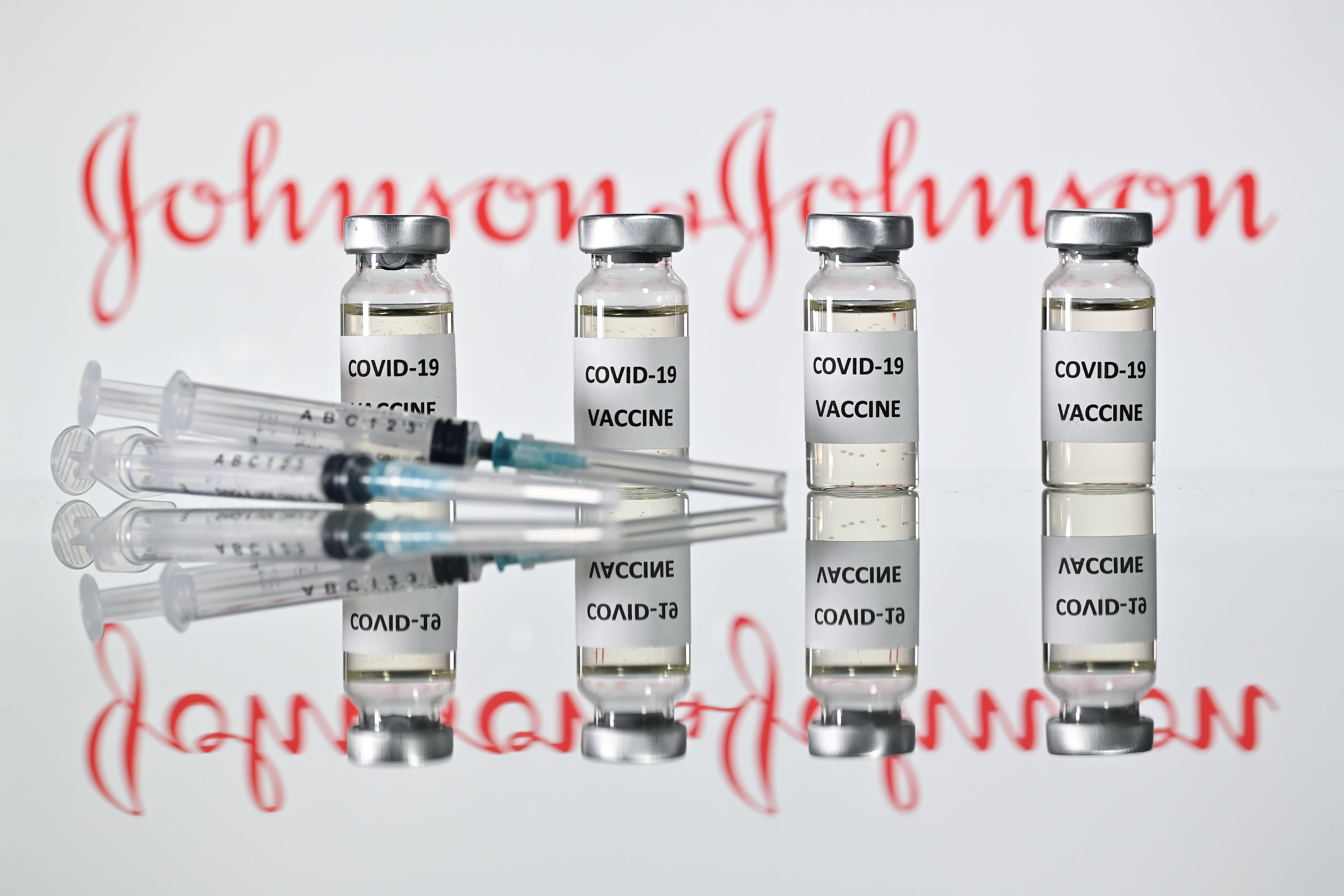
Johnson & Johnson said Friday that its one-dose coronavirus vaccine was 66% effective overall in protecting against Covid-19. The vaccine, however, appeared to be less potent against other variants.
The Food and Drug Administration has indicated it would authorize a vaccine that's safe and at least 50% effective. The flu vaccine, by comparison, generally reduces people's risk of getting influenza by 40% to 60% compared with people who aren't inoculated, according to the CDC.
The level of protection varied by region, J&J said, with the vaccine demonstrating 66% effectiveness overall, 72% in the United States, 66% in Latin America and 57% in South Africa after four weeks.
J&J said the vaccine was 85% effective in preventing severe disease four weeks after vaccination in all adults. The vaccine offered complete protection against Covid-related hospitalizations four weeks after vaccination, the company said.
"We're proud to have reached this critical milestone and our commitment to address this global health crisis continues with urgency for everyone, everywhere," J&J CEO Alex Gorsky said in a statement.
Shares of J&J were down more than 3% in premarket trading following the announcement.
The highly anticipated results were based on 468 confirmed Covid-19 infections among the phase three trial's more than 43,000 volunteers, according to J&J. The company said the trial includes those infected with B.1.351, the new, highly contagious strain found in South Africa.
Effectiveness against severe disease increased over time with no cases in vaccinated participants reported after day 49, according to the company. Protection was consistent across race and age, including those over the age of 60.
Dr. Anthony Fauci, the nation's leading infectious disease expert, said the most important finding of the J&J data is the vaccine may keep people out of the hospital and prevent them from getting severe illness.
"The most important thing, more important than whether you prevent someone from getting aches and a sore throat, is preventing people" from getting severe disease, the director of the National Institute of Allergy and Infectious Diseases said on a call with reporters. "That will alleviate so much of the stress and human suffering and death in this epidemic."
The vaccine was well tolerated, with no significant safety concerns related to the vaccine reported, J&J said. There were also no reports of anaphylaxis.
Dr. Scott Gottlieb, a former FDA commissioner, called the J&J data "fantastic," saying in a tweet that it showed the vaccine produced "sustained (and increasing!) immune protection over time."
"This one shot vaccine was highly effective at preventing severe disease, even with new variants," he said. "The milieu of disease now is more complex; even in U.S. - trials done today are running into more mutated cases. Make no mistake: this is an important and wonderful development."
U.S. officials and Wall Street analysts are eagerly anticipating the authorization of J&J's vaccine, which could happen as early as next month. Public health officials and infectious disease experts say world leaders will need an array of drugs and vaccines to defeat the virus, which has killed more than 400,000 Americans in about a year.
The new data also comes as U.S. health officials, including Fauci, are concerned that the Covid-19 vaccines currently on the market may not be as effective in guarding against new, more contagious strains of the coronavirus. Moderna said Monday it is working on a booster shot to guard against the South Africa strain. Pfizer and Novavax, a few days after Moderna, also said they will test modified vaccines.
Paul Offit, director of the Vaccine Education Center at Children's Hospital of Philadelphia, told CNBC that the new strains are not a problem yet, but it's important for drugmakers to prepare for the possibility that the virus could mutate enough to evade the protection of the current vaccines.
If J&J's vaccine is authorized by the FDA, it would be the third approved for emergency use in the U.S. behind the Pfizer-BioNTech vaccine and Moderna's. Pfizer's vaccine was authorized by the FDA on Dec. 11, and Moderna's was authorized a week later on Dec. 18.
Unlike Pfizer's and Moderna's authorized vaccines, which require two doses given about three to four weeks apart, J&J's requires only one dose. That means patients will not have to come back for another dose, simplifying logistics for health-care providers. Additionally, J&J has said it plans to ship the vaccine at between 2 to 8 degrees Celsius, which is about 36 to 46 degrees Fahrenheit.
Pfizer's vaccine needs to be stored in ultra cold freezers that keep it between negative 80 and negative 60 degrees Celsius, or between negative 112 and negative 76 degrees Fahrenheit. Moderna's vaccines need to be shipped at between negative 25 and negative 15 degrees Celsius, or negative 13 and 5 degrees Fahrenheit.
The Department of Health and Human Services announced in August that it reached a deal with Janssen, J&J's pharmaceutical subsidiary, worth approximately $1 billion for 100 million doses of its vaccine. The deal gives the federal government the option to order an additional 200 million doses, according to the announcement.
"may" - Google News
January 29, 2021 at 08:00PM
https://ift.tt/2M8xq1I
J&J says its Covid vaccine is 66% effective, but the single shot may fall short against variants - CNBC
"may" - Google News
https://ift.tt/3foH8qu
https://ift.tt/2zNW3tO
Bagikan Berita Ini














0 Response to "J&J says its Covid vaccine is 66% effective, but the single shot may fall short against variants - CNBC"
Post a Comment